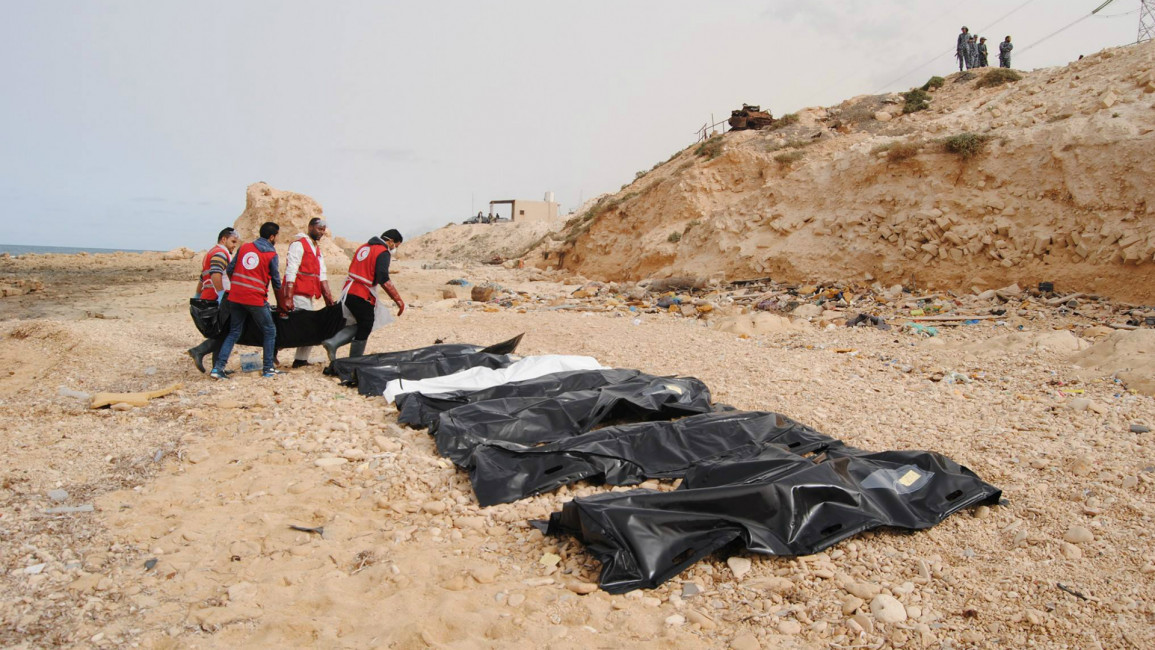Bodies of 74 refugees wash ashore in western Libya
The bodies of 74 people who drowned in the Mediterranean trying to reach Europe have washed up on a beach west of the Libyan capital, the Red Crescent said on Tuesday.
Residents of the village of Harcha, outside Zawiya, 45 kilometres (30 miles) from Tripoli, alerted the emergency services after finding a wrecked boat on the beach with bodies inside, the Red Crescent said.
More were discovered elsewhere on the beach and still more were feared to be in the sea.
|
— IFRC MENA (@IFRC_MENA) February 20, 2017
|
Photographs posted by the Zawiya Red Crescent on Facebook and Twitter showed a long row of black and white body bags lined up near the water's edge.
"We don't have an appropriate vehicle to transport the bodies or a cemetery for unidentified bodies to bury them in," the group said.
"Some bodies are still on the beach and others that we can't reach are still floating in the water."
Red Crescent spokesman Mohammed al-Misrati told The Associated Press that he feared more bodies might surface. He said a torn rubber boat, the kind that usually carry up to 120 people, was found nearby.
The International Organization of Migration said the traffickers took the engine and left the boat to drift. Another 12 people remain missing and are "presumed drowned," while a sole survivor was transferred to a hospital in a coma, the UN said on Twitter.
People smugglers have taken advantage of the chaos gripping Libya since the 2011 revolution to greatly boost their lucrative trade.
Most departures take place from the west of Libya, usually heading for Italy 300 kilometres (190 miles) away across the Mediterranean.
More than 180,000 people made the crossing last year, an increase of 17 percent from 2015.
In the absence of an army or a regular police force in Libya, several militias act as coastguards but are often accused themselves of complicity or even involvement in the people-smuggling business.



